Last-Minute NYC Holiday Gift Guide 🎁
We’ve created a holiday gift guide with presents for the intrepid New Yorker that should arrive just in time—


In the middle of a stretch of retailers on Fulton Street in Downtown Brooklyn is a brownstone building with a strikingly handsome portico entrance. Until about two years ago, a discount jewelry and clothing store inside hid the beautiful architectural details that once graced the space. It has been both a T.G.I. Friday’s and an Arby’s as well. But 372 Fulton Street was originally home to the famed restaurant Gage & Tollner, one of the city’s oldest restaurants, frequented by icons like Truman Capote, Mae West, and Jimmy Durante. The building was built in 1875 and the restaurant operated here from 1892 until the mid 1990s. It was a place where New York city’s elite families and the celebrities of the day dined amidst elegant surroundings. A 1930 restaurant guide proclaimed that “Gage & Tollner is to Brooklyn what the Statue of Liberty is to New York Harbor,” and another guide went so far as to say it was “Brooklyn’s main contribution to civilization.” In December or January, Gage & Tollner will be re-opened to its full glory.
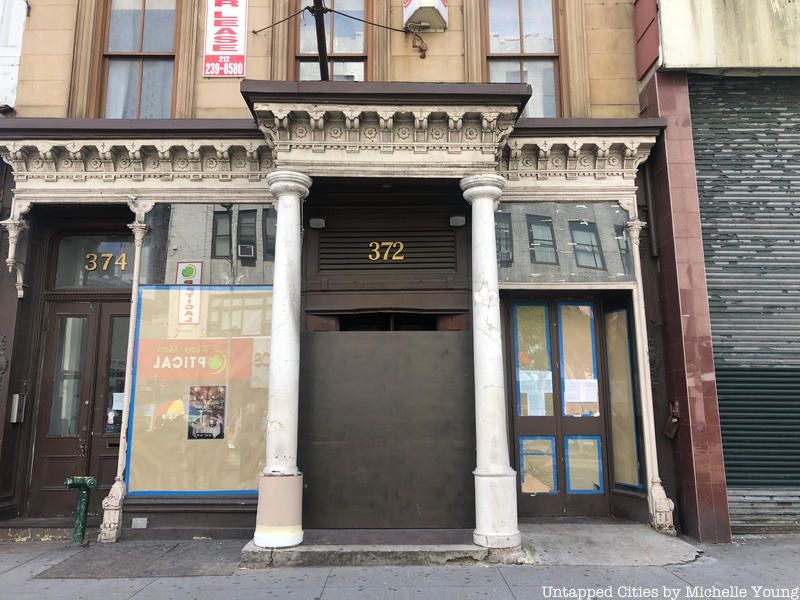
The team behind the revival includes Ben Schneider, the restauranteur behind Insa and The Good Fork, along with Sohui Kim, the chef at the helm of those two restaurants, and St. John Frizell, the bartender behind Fort Defiance in Red Hook. The building at 372 Fulton Street is both an interior and exterior landmark of New York City, the first dining establishment to be designated. As such, the restoration on the ground floor space will be just that: bringing it back to its original state. The Victorian-era brass chandeliers that define the long room will remain, as well the ornate, embossed Lincrusta-Walton wall panels, the wooden revolving doors, an original bar, and the rows of arched mirrors with cherry wood trim. These mirrors once created a sense of spaciousness for the restaurant, which is only twenty-five feet wide.
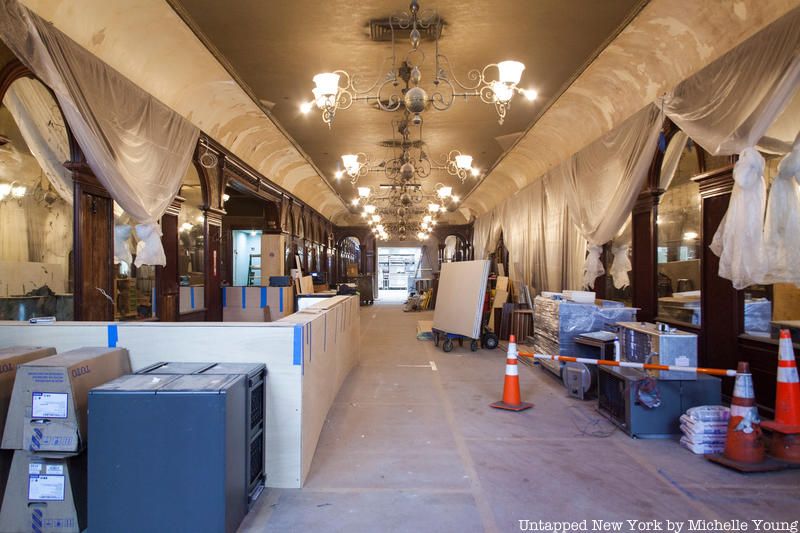
Alexandra Pearson Looney, PR Director for Gage & Tollner, tells us on a recent visit to the construction site that they have been working with the original company that produced the Lincrusta-Walton wall panels. They learned that the manufacturing process involved hand etching the designs and turning that into a pattern that could be rolled onto the material. The machines that made these panels are now 150-years old and the process is simply too arduous to permit such complicated patterns as the type seen inside Gage & Tollner, but incredibly you can still order these types of panel from the company catalog. The iconic lamps will not be lit with gas in the new space, but Looney tells us they “have actually been wired for gas and electric since the beginning of the restaurant and we have the certificate from 1888.” The team even has an original bulb with the filament inside.
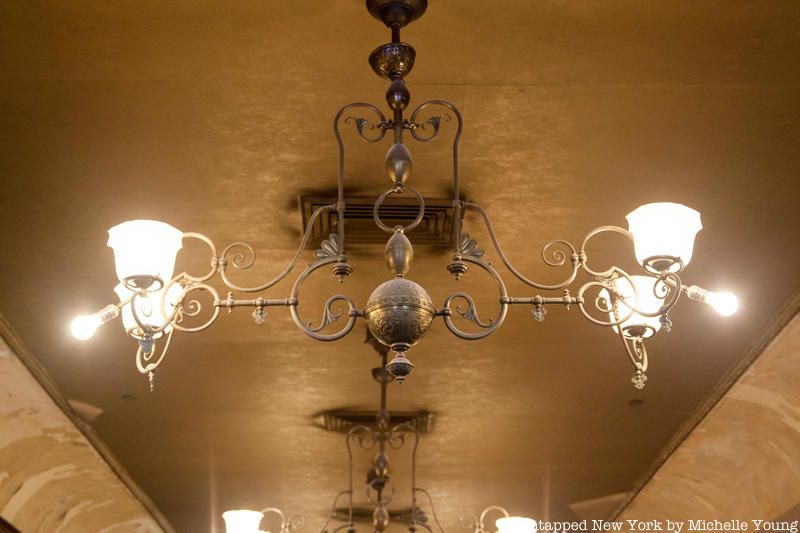
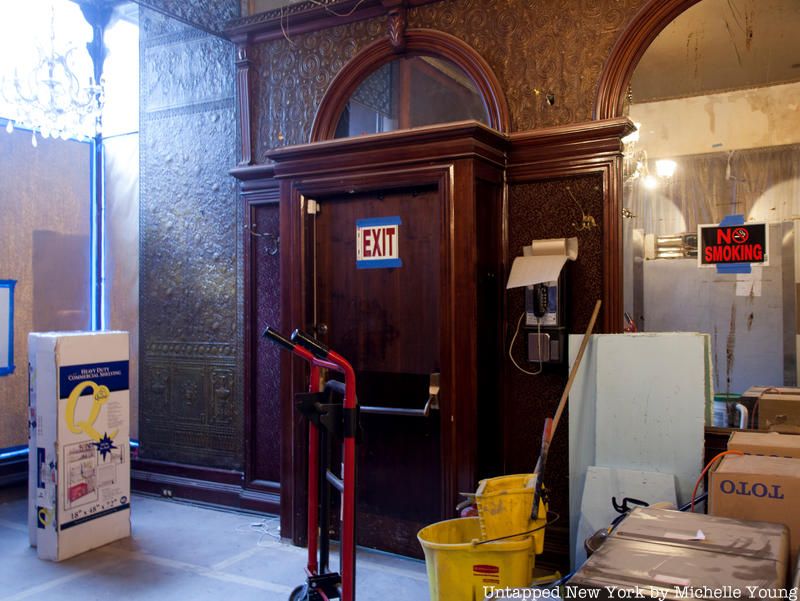 The copper embossed panels are the Lincrusta-Walton wall panels
The copper embossed panels are the Lincrusta-Walton wall panels
These artifacts are part of a major oral history project Looney is working on, interviewing people who worked and dined here. One former employee described how the oysters would be delivered: through an open grate in the sidewalk and caught by the staff below. “We keep just uncovering stuff,” says Looney, “like [the light bulb], from family members that have closets full of memorabilia. I actually interviewed somebody this morning who came here in the 1970s and she gave me an ashtray that she stole from here.” The woman said she had been waiting for years for Gage & Tollner to re-open and to be able to give back the ashtray. There will be a glass case on the second floor to showcase the artifacts and materials collected about the history of Gage & Tollner.
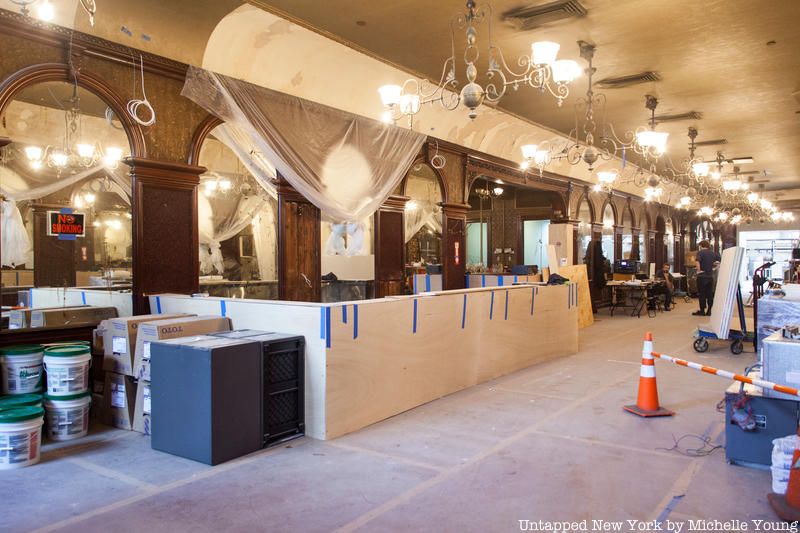

The second floor of the restaurant will have a restoration of the private dining rooms and a new tiki bar, the Sunken Harbor Club. There are even plans to restore a dumb waiter in the private dining room that went down to the first floor kitchens. Incredibly, the second floor had functioned as a nail salon and tattoo parlor for some years, and you can still see the remnants of a sign above the marble mantel.
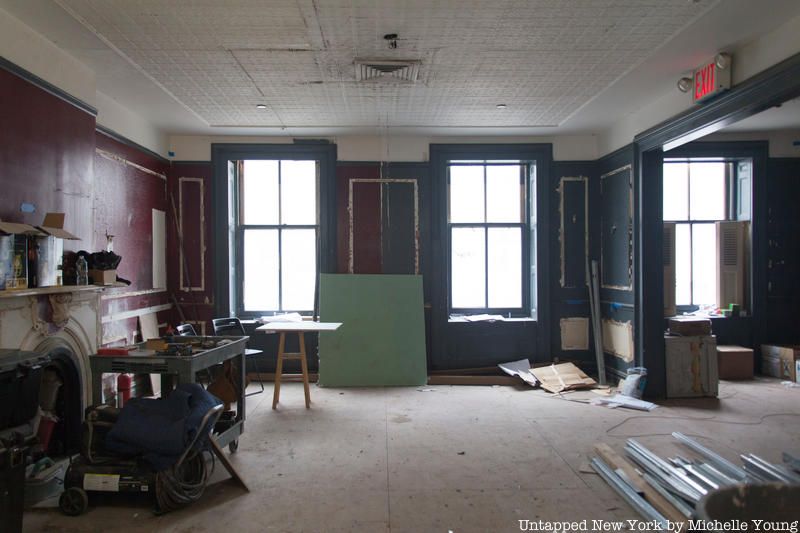 Second floor which will be restored to private dining rooms and a new tiki bar
Second floor which will be restored to private dining rooms and a new tiki bar
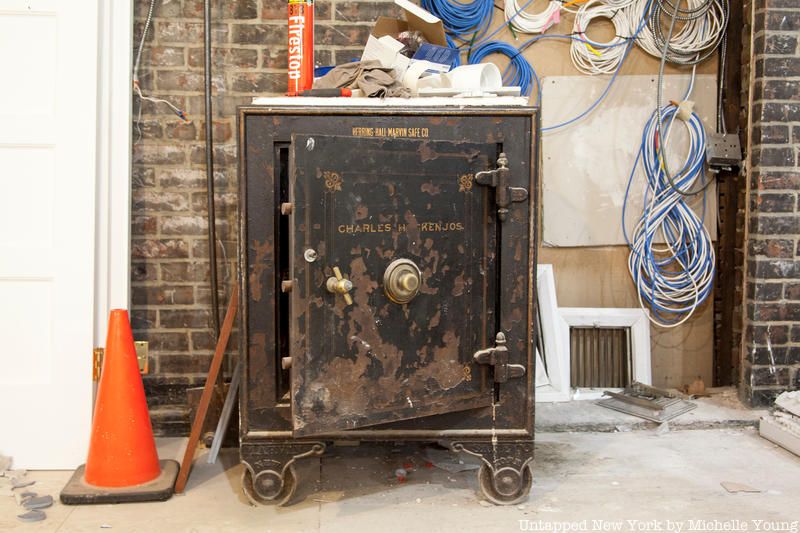
As for the food that will be served, Sohui Kim says, “I want to honor Gage & Tollner’s long history of serving simple food that people crave. As exciting and diverse as the current culinary climate is in this city, people still love iconic chophouse favorites like Caesar salad, creamed spinach, or a perfectly cooked ribeye. My goal is to elevate these classics without reinventing them or making them gimmicky, using meticulously sourced ingredients and diligent technique. Our relationship with food isn’t just physical; it’s emotional as well. And I want the food we serve to live up to our guests’ best memories of Gage & Tollner. For a chef, that’s a challenge if there ever was one!”
See more photos of the restaurant under construction below:
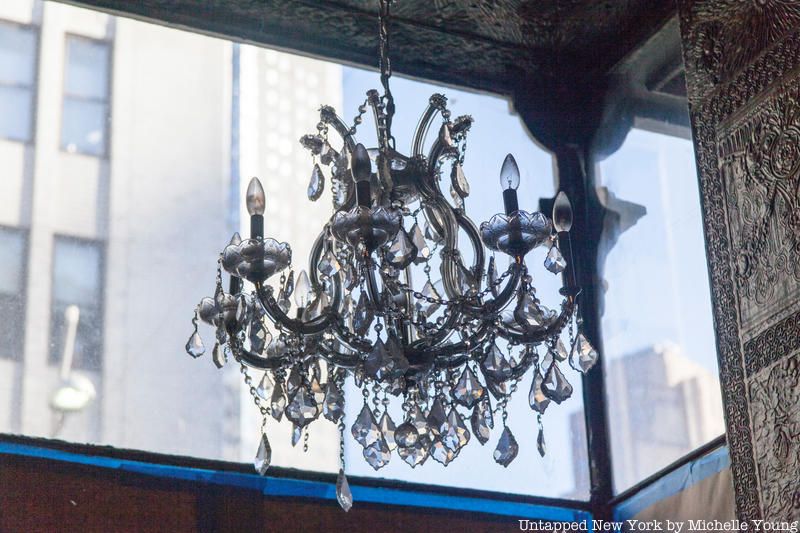
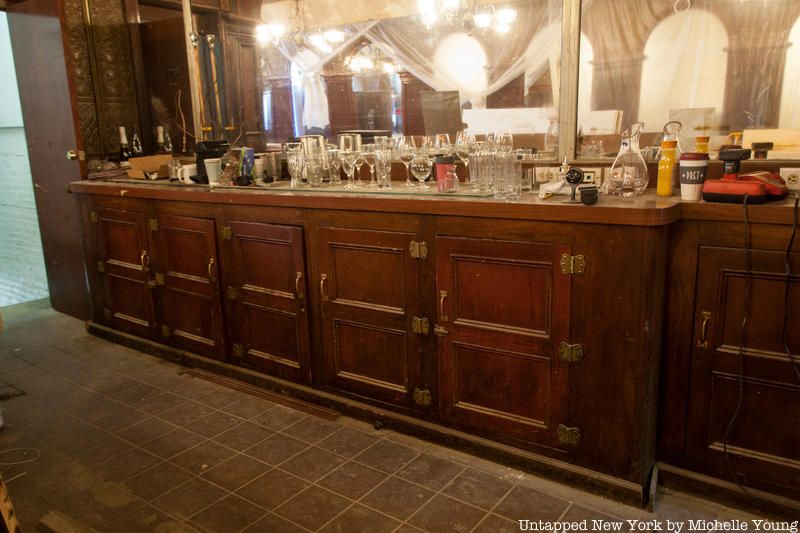
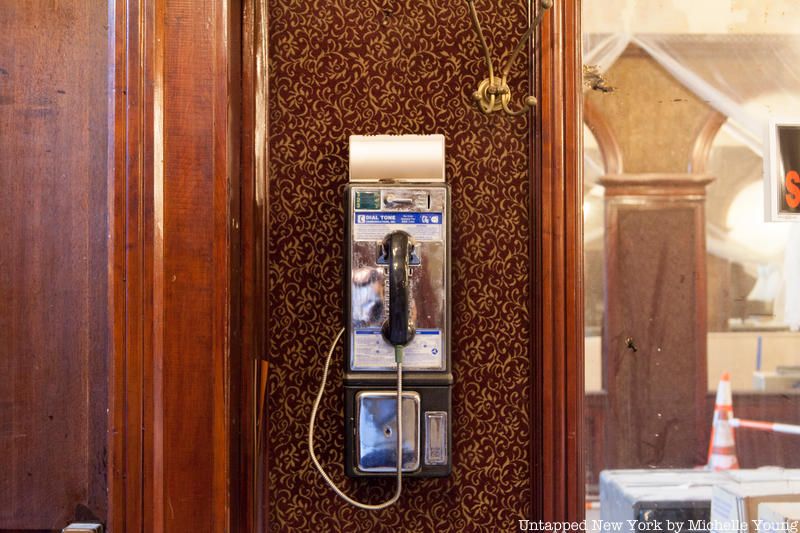
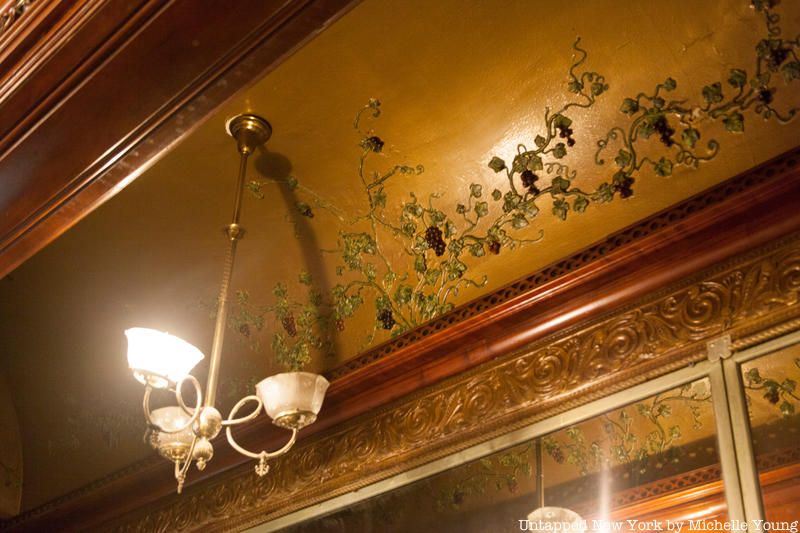
Next, check out the 10 oldest restaurants and bars in Brooklyn.
Subscribe to our newsletter